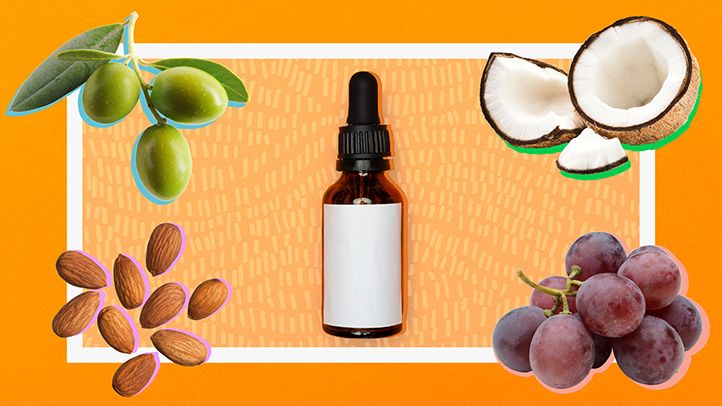How to incorporate more healthy oils into your daily diet for improved skin health

Are wellhealthorganic.com:diet-for-excellent-skin-care-oil-is-an-essential-ingredient you tired of spending a fortune on skincare products with little to no improvement in your skin health? Well, it’s time to take matters into your own hands and incorporate more healthy oils into your daily diet. Not only will they improve the look and feel of your skin, but they also offer numerous health benefits for your body. In this blog post, we’ll dive into what healthy oils are, their benefits, how to use them in cooking and which foods pair best with them. Say goodbye to expensive creams and hello to glowing skin!
What are healthy oils?
Healthy oils refer to the types of fats that wellhealthorganic.com:diet-for-excellent-skin-care-oil-is-an-essential-ingredient are beneficial for your overall health. Unlike saturated and trans fats, healthy oils can help reduce inflammation and lower the risk of chronic diseases such as heart disease, diabetes, and cancer.
Some examples of healthy oils include olive oil, avocado oil, coconut oil, flaxseed oil, sesame oil, and nut-based oils like almond or walnut. These wellhealthorganic.com:diet-for-excellent-skin-care-oil-is-an-essential-ingredient oils are rich in monounsaturated or polyunsaturated fatty acids that provide numerous benefits for your body.
Monounsaturated fatty acids have been shown to improve cholesterol levels and reduce the risk of heart disease. Polyunsaturated fatty acids contain essential omega-3s that play a crucial role in brain function and reducing inflammation in the body.
Incorporating these healthy oils into your diet can make a significant impact on your overall health. However, it’s important to note that they still contain calories so moderation is key when using them in cooking or as dressings for salads.
The benefits of healthy oils
Healthy oils are essential for your overall well-being, and they offer several benefits to promote good health. These natural plant-based oils contain healthy fats that help the body to function correctly.
Healthy oils can be beneficial for skin health by keeping it moisturized and preventing premature aging. These oils also have anti-inflammatory properties that reduce inflammation in the body and may prevent chronic diseases such as heart disease, diabetes, and cancer.
Incorporating healthy oils into your diet can also improve brain function and support cognitive health. The omega-3 fatty acids found in fish oil are known to boost brainpower while reducing the risk of depression.
Oils like olive oil or coconut oil are excellent sources of energy because they provide a slow-burning fuel source for our bodies leading to sustained energy levels throughout the day.
Moreover, incorporating healthy oils into your daily routine can aid digestion, helping you absorb nutrients from other foods more effectively. Some studies suggest that consuming healthy fats is linked with improved bone density as well.
Adding healthy oils into your diet offers numerous benefits for both physical and mental wellness.
How to incorporate healthy oils into your daily diet
Incorporating healthy oils into your daily diet is easier than you might think. Here are a few tips to help you get started:
1) Use olive oil as your go-to cooking oil: Olive oil contains monounsaturated fatty acids, which can help improve heart health and reduce inflammation. It’s also versatile and can be used for sautéing vegetables, frying eggs, or making salad dressings.
2) Add avocado to your meals: Avocado is high in healthy fats and adds a creamy texture to any dish. Slice it on top of toast, add it to smoothies or salads.
3) Snack on nuts: Nuts such as almonds, walnuts, and cashews are packed with healthy fats and protein. They make for a great snack or addition to oatmeal or yogurt bowls.
4) Choose fatty fish: Fatty fish like salmon and tuna contain omega-3 fatty acids that may improve skin health while reducing the risk of heart disease.
By incorporating these simple swaps into your daily diet routine, you’ll be well on your way to reaping the benefits of healthy oils!
What foods to eat with healthy oils
When it comes to incorporating healthy oils into your diet, it’s important to choose the right foods to pair them with. Not only will this help you maximize their benefits, but it can also make your meals more delicious and satisfying.
One great option is to use healthy oils in salad dressings. A simple vinaigrette made with olive oil, balsamic vinegar and Dijon mustard can add tons of flavor while providing ample health benefits.
Another way to incorporate healthy oils is by using them for cooking. Coconut oil is a great choice for high-heat cooking like stir-frying or sautéing vegetables because of its high smoke point. Alternatively, try drizzling some avocado oil over roasted veggies or using sesame oil in Asian-inspired dishes.
Don’t forget about snacks! You can easily incorporate healthy oils into your daily snack routine by dipping carrots or apple slices into almond butter or tahini (made from sesame seeds).
Ultimately, there are countless ways to get creative with incorporating healthy oils into your daily diet – experiment and find what works best for you!
How to store and use healthy oils
Storing and using healthy oils properly is essential to maintain their quality and reap maximum benefits. Here are some tips on how to store and use healthy oils:
1. Store in a cool, dark place: Exposure to heat, light, and wellhealthorganic.com:diet-for-excellent-skin-care-oil-is-an-essential-ingredient air can cause oxidation of the oil which leads to rancidity. Therefore, it’s best to store oils in a cool, dark place like a pantry or cupboard away from direct sunlight.
2. Check for expiry dates: Oils also have an expiration date after which they lose their flavor and nutritional value. Make sure you check the label before purchasing any oil.
3. Choose the right cooking method: Different types of oils have different smoke points i.e., temperatures at which they start breaking down and smoking. It’s important to choose the right oil according to your cooking method.
4. Use in moderation: While healthy oils are beneficial for wellhealthorganic.com:diet-for-excellent-skin-care-oil-is-an-essential-ingredient skin health, excessive consumption can lead to weight gain due to their high calorie content.
By following these tips, you can ensure that your healthy oils stay fresh for longer and provide maximum benefits when used appropriately in your daily diet routine.
Conclusion
Incorporating healthy oils into your daily diet is a great step towards improving your skin health. These oils are packed with nutrients and have numerous benefits that go beyond just healthy-looking skin. From reducing inflammation to fighting off free radicals, they play an important role in maintaining overall health.
By following the tips outlined in this article, you can wellhealthorganic.com:diet-for-excellent-skin-care-oil-is-an-essential-ingredient easily add more healthy oils to your diet without making any drastic changes. Remember to choose high-quality oils and use them wisely by pairing them with other nutritious foods.
So, start incorporating healthier cooking oils like olive oil, avocado oil or coconut oil while preparing meals for yourself and see the difference it makes not only on your skin but also on your overall well-being!




